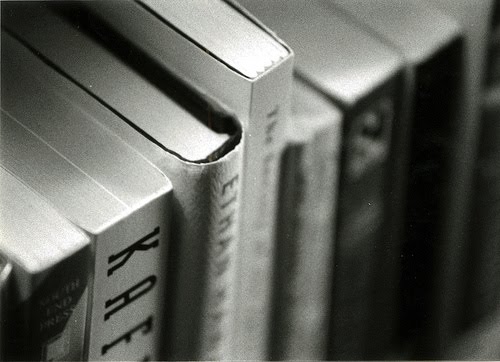And then it hit me.
The poems aren't about me. It is someone else sharing their uttermost feelings with the world. Trying to find an outlet to their creativity, their gift. Even if I don't like it, this is what someone created. A human being's form of beauty-and pleasure. So, I opened a magazine again, and let the pages fall randomly. It was from the magazine Poetry.
My fingers paused at page 395. "In every life" by Aliciia Ostriker.
In every life there's a moment or two
when the self disappears, the cruel wound
takes over, and then again
at times we are filled with sky
or with birds or
simply with the sugary tea on the table
said the old woman
I know what you mean said the tulip
about epiphanies
for instance a cloudless April sky
the approach of a butterfly
but as to the disappearing self
no
I have not yet experienced that
You are creating distinctions
that do not exist in reality
where "self" and "not-self" are like salt
in ocean, cloud in sky
oxygen in fire
said the philosphical dog
under the table scratching his balls
Before hand, I would have not liked this poem, the last line is to vulgar (which is nothing compared to other things). Now, I can appreciate it. This Ostriker thought it had meaning. So now, I will try to find that hidden meaning, like a puzzle, which she hid throughout her words.
A woman, a tulip, and a dog. Three different life filled things. All speaking as if they knew eachother, yet, really, they don't. The woman discovers something, and the tulip thinks something, and then the dog states something. What I understood from this poem, is that this Alicia person is trying to say that everyone thinks in their own ways. No one is the same, and everyone has different experiences. The woman might have wounds from her long past, and she is handing herself over to soon to be death. The tulip is concentrating on beauty such as a "butterfly" or "cloudless sky" - while shying away from the thought of a "disappearing self". The dog, viewed as dirty and common place, simply states matter of factly that "distinctions" do not "exist in reality." In other words, everyone and everything is the same.
Yet how do these three characters relate? The fact that Ostriker used the figure three is significant, because it brings to mind the Roman Catholic Trinity: the Father, the Son, and the Holy Ghost. Therefore, religion, or after life come to mind.
A woman could signify fertility, yet since she is old, infertility is signified.
The tulip, a perennial flower, could represent rebirth after apparent death - reincarnation.
The dog brings to mind class, or in his case, low class. He is underneath the table, below the woman and the flower.
Infertility (the woman): Her wounds could be the lack of children, or the fact that her children are all grown up. She says that sometimes "the self disappears" and she can think of only her "wounds" or sometimes "sky", "birds", and "sugar". From this, I understood that in life, you can think of the sad things you cannot change, and you can think of those little pleasures in life which you love, and which seem as if they were placed there exactly for you. In other words, the opposites of life, the good and the bad, create a feeling of yourself "disappear"ing.
(to be continued)

No comments:
Post a Comment